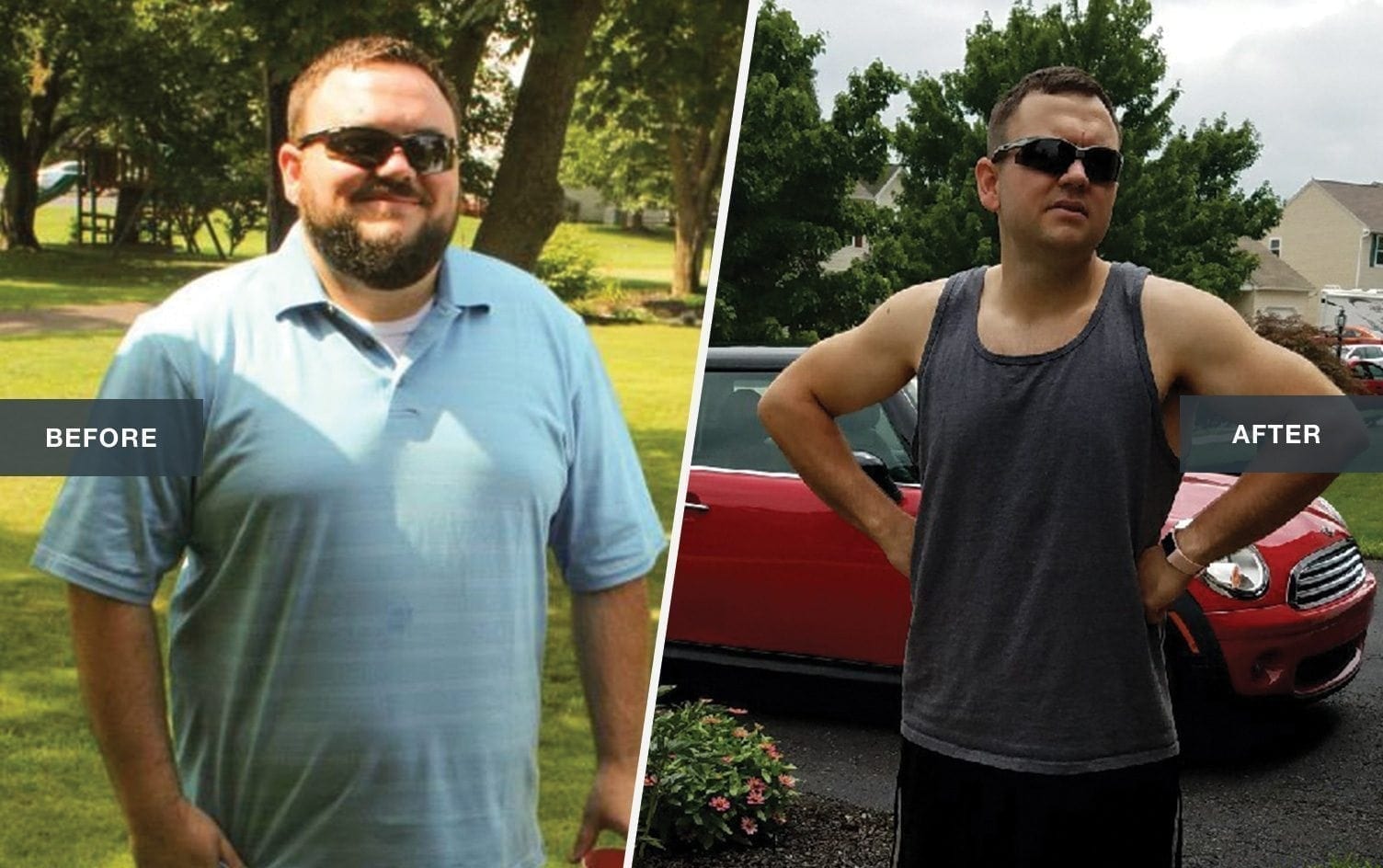Back in 1905, future U.S. President William Howard Taft worried about so much about his girth − he weighed in excess of 300 pounds (136 kilograms) − that he began corresponding with Dr. Nathaniel E. Yorke-Davies, an English weight-loss guru. Yorke-Davies put Taft on a strict low-carb, low-fat regimen that included a three-page list of foods he was permitted to eat and ones he had to avoid. It actually worked − Taft lost 60 pounds (27 kilograms). Feeling successful, Taft then strayed from the diet and got even heavier than he was before [source: Klein].
Sounds familiar, doesn’t it? Since Taft’s time, Americans have followed other diet doctors, and tried various sorts of exotic regimens − ranging from the 1930s Hollywood Diet, which emphasized eating a grapefruit with each meal to today’s Paleo Diet, which supposedly aims to emulate our hunter-gatherer ancestors [sources: Rotchford, Jabr].
We’ve heard plenty of weight-loss advice over the years as well, about which foods to eat, when to eat them and which combinations to avoid. And we’ve seen weight-loss experts give conflicting opinions or change their minds about what’s really making us fat.
In truth, a lot of popular ideas about weight loss and gain, including ones that once were championed by medical experts, haven’t held up to scientific scrutiny. Here are 10 truisms that are now being questioned.
Contents
- To Lose Weight, Follow the Right (Fad) Diet
- Better to Lose Weight Gradually Than Rapidly
- Eating After 8 p.m. Makes You Fatter
- Beware of the Freshman 15
- You're Gaining Weight Because You Lack Dairy
- Eating Too Much Fruit Makes You Fat
- Eating Full-fat Makes You Fat
- Kids Are Chunkier Now Due to Fewer P.E. Classes
- Realistic Weight Loss Goals Are Better
- Birth Control Pills Make You Fatter
10: To Lose Weight, Follow the Right (Fad) Diet
“
Your local Barnes & Noble will stock a wide variety of diet books; yet, studies show that all diets cause about the same amount of weight loss.
© Jerry Arcieri/Corbis
Over the years, experts have preached the benefits of all sorts of diets, from the cabbage soup to the Atkins to the Mediterranean diets. Back in the 1990s, one of the hottest fads was the zone diet, which called for a precise ratio of carbohydrates, fat and protein at each meal. In the 2000s, actress Gwyneth Paltrow championed the macrobiotic diet, a regimen based upon whole grains and vegetables [source: Rotchford]. Makes you wonder which ones really work.
According to a 2013 article in the Journal of the American Medical Association, there’s no scientific evidence that any one of these weight reduction plans is better than the others. An analysis of numerous randomized trials of various diets showed that the differences in their effect on metabolism and body weight was small − the average variation was only 2.2 pounds (1 kilogram) − and inconsistent [source: Pagoto and Appelhans].
However, that doesn’t mean that following a diet is necessarily a bad thing. The one consistent effect that the researchers found was that following any sort of reasonable diet and exercise plan would lead to weight loss and improvement in health [source: Pagoto and Appelhans].
9: Better to Lose Weight Gradually Than Rapidly
“
Surprisingly, experimental trials showed that people who lost weight rapidly weighed less at the end of longer-term follow-ups versus people who lost weight gradually.
George Doyle/Stockbyte/Thinkstock
This is something that you’ll hear repeated a lot, and it sounds logical. After all, isn’t it risky to lose a lot of weight fast? Many people have tried really extreme measures − so-called "crash diets" where you might eat just 800 calories a day, combined sometimes with ingesting odd stuff such as cayenne pepper. Doctors worry, and rightfully so, about dieters eating so little that they deprive their bodies of vital nutrients such as potassium, magnesium and copper, which can cause heartbeat irregularities and other scary side effects [source: Miller].
Even when aggressive diets are safe, health experts have said they usually are counterproductive. The reasoning was that rapid weight loss slowed down your metabolism, so over the longer term, you’d stop losing weight and even start gaining it again [source: Miller].
But research doesn’t back that argument up. According to a 2013 New England Journal of Medicine article, experimental trials showed that people who achieve rapid weight loss actually tended to weigh less at the end of longer-term follow-ups as well. "A recommendation to lose weight more slowly might interfere with the ultimate success of weight-loss efforts," the researchers concluded [source: Casazza et al.].
8: Eating After 8 p.m. Makes You Fatter
“
Eating late at night doesn’t necessarily cause weight gain. It’s how much you eat at night that counts.
Jupiterimages/Stockbyte/Thinkstock
This is another one that seems to make perfect sense. Pioneering nutrition guru Adelle Davis famously advised people to eat like a king at breakfast and a pauper at dinner. And we’ve all heard the adage that if we eat too much too late in the evening, our sleeping (or TV-watching) bodies won’t burn many calories, and we’ll only end up storing more fat.
But again, science doesn’t back up that belief. In the mid-2000s, researchers from Oregon Health and Science University charted the eating habits of monkeys as part of a study on the effect of menopause on weight gain. They discovered that when left to their own devices, the primates ate on different schedules, with many consuming most of their food in the evenings and late at night. There turned out to be no correlation between weight gain and the time of feeding [source: BBC News].
There is a caveat however: People tend to snack after dinner while watching TV or surfing the net. If you do that in addition to your regular meals, the increased caloric consumption will show up on the scale [source: Zelman].
7: Beware of the Freshman 15
“
Contrary to popular belief, the average college freshman only gains about 3 pounds.
Rhienna Cutler/E+/Getty Images
For decades, it’s been accepted as truth that college students (especially women) will pack on the pounds during their first year of college. The phenomenon was once known as the "freshman 10," (meaning, a 10 pound weight gain) but since the late ’80s, it’s escalated to the "freshman 15," which we suppose is the equivalent of dietary grade inflation [source: Khazan]. The truism is still taken so seriously that the news program "Good Morning America" did a 2014 segment titled "Beat the Freshman 15" and offered helpful tips such as, "The dining hall is not an all-you-can-eat steakhouse" [source: Drayer].
However, the "freshman 15" is really a myth. In a 2008 study published in the Journal of American College Health, 121 freshmen at a northeastern university reported an average weight gain of 2.7 pounds (1 kilogram), with men (3.7 pounds) actually gaining more weight than women (1.7 pounds). Only half of the students gained weight at all, and the gains were about 7 pounds on average. A third of the students had no weight gain, and 15 percent actually lost weight during freshman year [source: Mihalopoulos, et al.].
Yes, you’ll probably eat more at college than you did in high school (the 3- pound gain is still more than the average person gains in a year), and you should be careful with your diet, but chances are you won’t pork up by 15 pounds.
6: You're Gaining Weight Because You Lack Dairy
“
Eating lots of dairy has no effect on body fat, studies show.
didecs/iStock/Thinkstock
This one might have gotten started in the mid-2000s, when a study found that obese adults, who ate three 6-ounce (170-gram) servings of fat-free yogurt as part of a reduced-calorie diet, lost 22 percent more weight than dieters who simply cut calories. Even more appealingly, the study, which was funded in part by a company that manufactures yogurt, found that the yogurt eaters lost more fat in the belly area than the control group. And that’s what everybody wants, right? The hypothesis was that calcium and protein from low-fat dairy products somehow helped to burn fat and melt off the pounds [source: WebMD].
Thanks, yogurt company! That sounds like a pretty good deal, since yogurt tastes better than some of the other exotic concoctions that dieters are willing to consume. But a study published in 2012 analyzed data from previous studies and found that dairy consumption, in itself, didn’t have any significant effect on body weight or fat loss. Also, it had only "modest" benefits as part of a reduced-calorie regimen [source: Chen et al.].
5: Eating Too Much Fruit Makes You Fat
“
Fruit is good for you — just don’t overdo it.
Digital Vision/Thinkstock
We all grew up hearing that fruit is good for you, so it’s perplexing to find that apples, strawberries and the like are now at the center of a diet-fad controversy. On the one hand, people point out that fruits are full of important nutrients such as antioxidants and fiber, which are not only important to digestive health but also help you to feel fuller and less inclined to pig out on snack food.
But fruit also seems to have a growing list of detractors, who are publishing articles and posting comments all over the Internet claiming that fructose, or fruit sugar, is just as bad for you as the processed kind, and will cause you to pack on the pounds [source: Roussell].
Both sides are wrong, according to a 2014 study by University of Alabama at Birmingham researchers. After analyzing data on seven scientific trials involving 1,200 subjects, they concluded that increasing consumption of fruit has a "near-zero effect" on weight loss. But here’s the good news: It doesn’t increase your weight either – unless you misunderstand the U.S.Department of Agriculture recommendation to eat more fruit. If you add it on top of your normal diet (rather than substituting a fruit for a cookie) you just might gain more weight [source: Wyatt].
4: Eating Full-fat Makes You Fat
“
For years, people were told to cut back on fat — and we did but we got fatter anyway. Doctors now believe that fat was not cause of our obesity epidemic.
Dave and Les Jacobs/Lloyd Dobbie/Blend Images/Getty Images
If you’re a fan of indie cinema, you probably remember that scene from the 2004 coming-of-age hit "Napoleon Dynamite," in which the awkward protagonist tries to make conversation with a girl he likes: "I see you’re drinking 1 percent. Is that ’cause you think you’re fat? ‘Cause you’re not. You could be drinking whole if you wanted to" [source: IMDB].
That movie scene is funny, in part, because it reminds us of the popular belief that when you eat or drink foods rich in fats, your waistline and butt will expand as a consequence. But as an article on the Harvard School of Public Health’s website explains, studies show that the proportion of fat in a person’s diet doesn’t really have much effect upon weight. In fact, over the past 30 years, while the percentage of calories from fat in the typical American diet has gone down, obesity rates have skyrocketed.
Again, it mostly comes down to calories. Many low-fat diets are full of carbohydrates (like white rice and bread) which can cause weight gain. That said, the type of fat does matter − try to consume more monounsaturated and polyunsaturated fats and less saturated fats. Saturated fats are found in products like butter, cheese and red meat [source: Harvard School of Public Health].
3: Kids Are Chunkier Now Due to Fewer P.E. Classes
“
Regular P.E. helps kids learn sports and valuable life skills but the timeframe is not enough to help children lose weight.
Ariel Skelley/Blend Images/Getty Images
According to the Centers for Disease Control and Prevention, the percentage of children between the ages of 6 and 11 who are dangerously overweight has more than doubled between 1980 and 2012, and the obesity rate has quadrupled among adolescents. Those extra pounds, the CDC says, are putting kids at risk for an array of adult health problems, ranging from heart disease and diabetes to cancer.
That alarming trend has led a lot of adults to complain that kids these days would be slim and fit if they just had physical education (P.E.) in school. The problem, they think, is that many schools have been de-emphasizing it because of budget cuts and the need to spend more time on academics [source: Baker].
But studies have found that increasing the number of days in which kids have gym doesn’t seem to have any consistent effect upon body-mass index or the prevalence of obesity. It’s difficult in a school class to achieve the amount of activity and calorie expenditure needed to make a difference [source: Casazza et al.].
2: Realistic Weight Loss Goals Are Better
“
Setting ambitious weight loss goals may actually be more effective than setting realistic ones.
Pixsooz/iStock/Thinkstock
We’ve heard diet doctors and fitness gurus preach this to us over and over. And it makes sense on the surface. Isn’t it better to be realistic, and set goals that we can be reasonably sure of accomplishing, such as being able to fit into those mom jeans that we bought recently, rather than vowing to lose 50 pounds (23 kilograms) in a few months?
The problem, though, is that according a summary of research findings in the New England Journal of Medicine, ambitious goals for weight loss actually are more likely to result in a greater number of lost pounds. And while intervening and convincing people to have supposedly more realistic goals does result in more moderate weight-loss expectations, it doesn’t necessarily improve the chances of accomplishing them. In two studies where the weight loss goals were changed to make them more realistic, no greater weight loss outcome was recorded [source: Casazza et al.]. So go ahead, imagine that Jillian Michaels is screaming in your ear to do more burpees and aim for dropping major pounds.
1: Birth Control Pills Make You Fatter
“
Researchers found no evidence that modern birth control pills cause weight gain.
BSIP/UIG/Getty Images
This is one that many women undoubtedly fear. "The pill," after all, does cause users to retain more fluid, which can make them feel that their breasts, thighs and hips are expanding [source: Mayo Clinic]. But as the scientific journal Nature reported in 2006, researchers who surveyed data from 44 studies on the subject concluded that there’s no evidence that using contraceptives causes an increase in weight.
The studies also found that contraceptives had little effect on boosting appetite − a common explanation for the extra pounds. When the pill was introduced in the 1960s, it had very high levels of estrogen, which does increase appetite and fluid retention. The current version of the oral contraceptive has much lower levels [source: Gaither].
That doesn’t mean that women don’t sometimes gain weight after starting on the pill. But as David Grimes, one of the researchers, explained to Nature, the reason is most people of both sexes gain weight as they age − about 1 pound (2 kilograms) per year. But that’s not a reality that any of us like to face, so we tend to look for other explanations [source: Hopkin].



















acne medication blur – acne medication mail acne medication poison